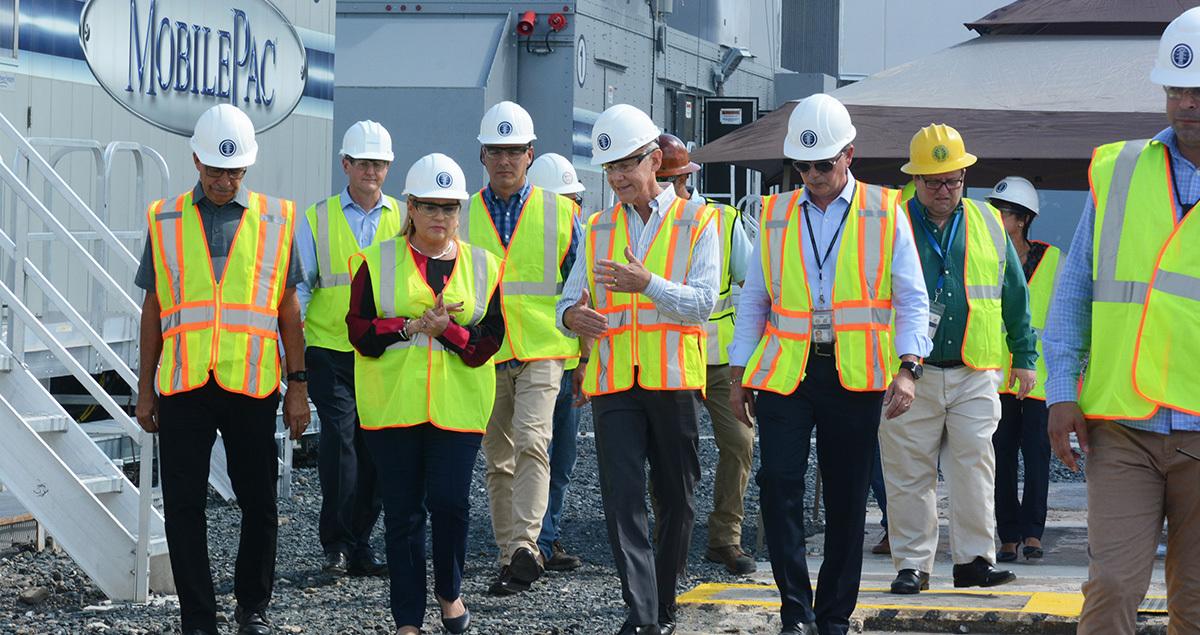Preparing utilities for a new era of emergency response

If you’re like most of the customers I’ve worked alongside, you’ve worked hard to build a culture of preparedness from decades of experience. But my experience with utilities around the globe has convinced me that the current approach is no longer enough.
Recent major disasters, such as Hurricane Maria in Puerto Rico, have shown how one unforeseen problem can trigger a cascade of devastating failures. To cope with this scale of disaster, utilities must establish a new culture of preparedness rooted in the following:
- The flexibility to adapt to fast-changing situations
- A radical degree of simplicity to minimize the number of things that could go wrong
- Constant refinement and improvement
To help meet these new challenges, utilities need to approach emergency preparation with a new mindset and new best practices.
Plan around your people
Power providers tend to think about preparedness in terms of materials. But your tools are only as good as the workers using them—and those workers won’t perform well if they’re suffering physical or mental strain or lack training in key tasks.
What you can do:
- Have the right people in place. Designate and train multiple backup teams, not just a roster of alternates.
- Rehearse more scenarios, more often, in both scheduled and unscheduled training exercises. In a crisis, workers may not have time or capacity to figure out what to do; the exercises should be ingrained.
- Anticipate your employees’ needs. Plan how you’ll provide food, water, shelter and other essentials to your workers, and in certain cases to their families.
Tame complexity with simplicity
In an outage, utilities face some of the same problems that we do as homeowners. We may have the tools we need, but we’re not sure where they are and can’t find them in a crisis. That’s why simplifying ahead of time is paramount.
What you can do:
- Make sure you have the right tools on hand, know exactly where they are and know how to access them.
- Pre-stage emergency tool kits and store them near where you’re likely to connect mobile generation, so you’re not relying on far-flung storage yards.
- Stock up on extra materials. A storm could move through a huge geographic area, affecting surrounding regions and cutting off access to essentials.
- To realize mobile gas turbines’ potential, plan where units will be used in various circumstances, how you’ll transport them and how to set them up.
- Find or develop sites with readily available natural gas, kerosene or propane to fuel the FT8® MOBILEPAC® unit for extended periods of time.
Scrutinize how critical facilities prepare
Be prepared to step in at water treatment and water supply facilities, police and fire stations, and hospitals if their backup systems fail or if an emergency continues.
What you can do:
- Find out how long hospitals and other essential facilities can operate on backup power.
- Determine how you would get them connected if their backup systems were destroyed or ran out of fuel.
- Collaborate on an ongoing basis with these priority players to prepare for emergencies beyond those accounted for in their designs.
Foster a “what-if” mindset
This new culture of preparedness requires habitually asking “What if?” to uncover new opportunities for preparation. When people open their minds to that question, when they anticipate surprises, learn from the past and prepare for the gamut of possibilities, they’re in a stronger position to handle crises.
The work you do now can have a powerful impact on your effectiveness in an emergency. When extreme storms hit, utilities have the critical job of helping communities move forward. Let’s make sure we’re ready.
This article originally appeared in Turbomachinery International Magazine – linked here.
More information on the products and services provided by Mitsubishi Power Aero FT8® MOBILEPAC® Gas Turbine Package





